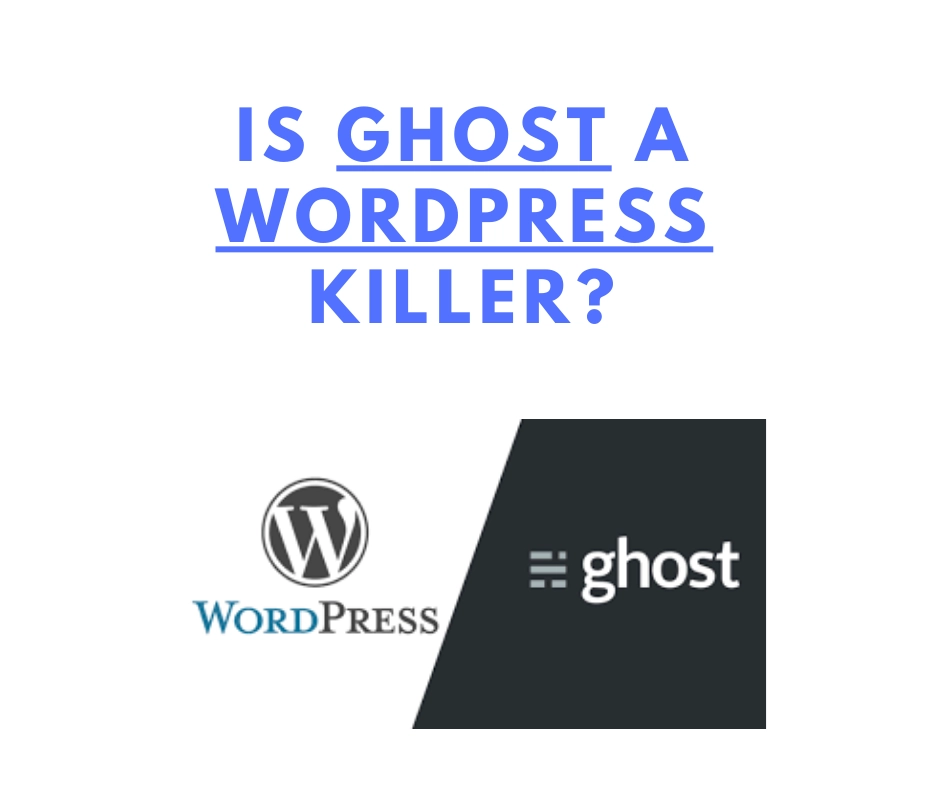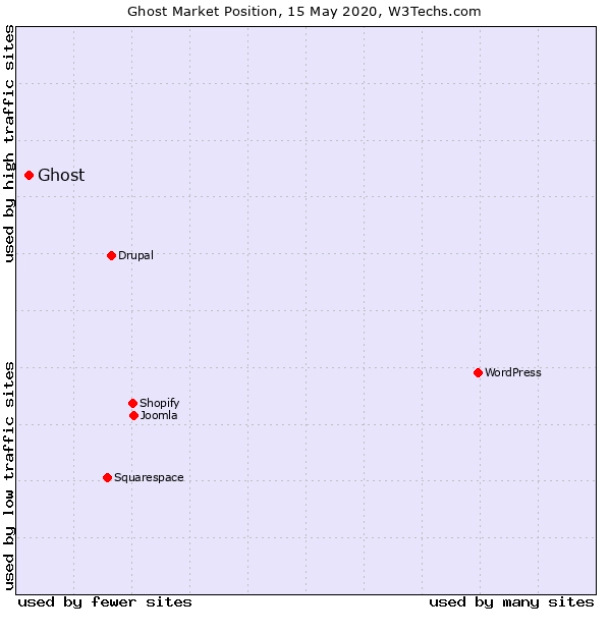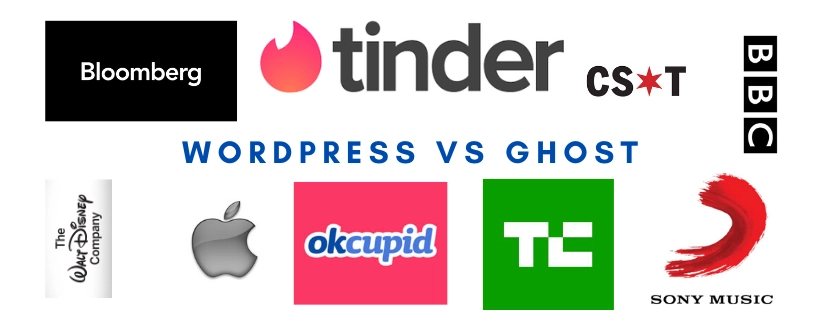This is a brief overview of whether WordPress or Ghost really is better for business blogging.

Mid-COVID-19, there’s a great movement of businesses moving online (in addition to some serious sales for online purchases at present) while ditching the whole conventional mode of doing business, which is the brick-and-mortar model. Now, with so many options available to go online, there are plenty of e-commerce solutions that can help your business reach the Internet masses.
We’ve structured this article to be read-worthy and conversational as opposed to being more of a listicle. Consider this period, aptly named, we think – creative destruction for lack of a better term – since there are so many innovations taking place due to the economic strain that has been placed on the shoulders of businesses on a global scale. Let this brief introduction segue into introducing the subject of this article – WordPress vs. Ghost: What’s Better For Business Blogging?

If WordPress is the dad, Ghost has to be the son. Is this an era where Ghost is Oedipus and WordPress is Laius? Is Ghost a WordPress killer? That’s possibly hard to tell. Or, is it? After all, the new kid did eat into the big guy’s market share somewhat; you can see this in the graph above. To give this article structure and value, let’s look at a brief description along with the advantages and disadvantages of each platform specifically identified for the business world. First up, let’s consider the industry leader – WordPress followed by Ghost.
WordPress
Organic traffic is everything on the Internet, and WordPress gets 46.1% of organic traffic, and this really is a huge benefit if you are running an e-commerce site.
WordPress is the most used CMS on the internet. It is well developed and improved over the years since it was started in 2003. Aside from that, there are so many plug-ins like Yoast that can be utilized for WordPress, which will give you an advantage over the competition. Moreover, the fact that WordPress is an industry leader means that there is so much support from WordPress support forums and communities when it comes to troubleshooting or learning.
What about when it comes to site speed? No problem here, but if you do start using too many plugins or if they are not compatible then your site speed will suffer. (An interesting point: In WordPress, it's easy to customize and add really useful things like email subscription forms and other popups using plugins. This is just one of the features that Ghost lacks.) Additionally, when it comes to being user-friendly, WordPress did have easy drag-and-drop functionality, and now they have a really cool WYSIWYG editor, which we prefer over Ghost’s Markdown system; however, a certain level of coding is required for any specific customization. In WordPress, there are also well-developed free and premium themes that you can use on your website.
Ghost
Ghost is certainly faster or so they say; the marketing spiel is that it’s powered by a modern technology stack using Node.js with it 1,900% faster than WordPress. Independent tests have proved this is the case. But let’s focus on the crux of the matter, which is the subject of the title: What actually is better for business blogging? The fact is that Ghost is mainly focused on bloggers, whereas, WordPress has the advantage of using a multifunction CMS, which targets the trinity of content creators i.e. bloggers, businesses, and eCommerce. Yet, there are world-class businesses out there that utilize Ghost for its blogging platform: Duck Duck Go and Digitial Ocean; Tinder and Revolut; Mozilla and Airtable; Code Cademy and Cloudflare; OkCupid and Bitpay, and TransferWise.

Let’s now look at some of the key criteria that will help you take that final and critical decision when it comes to choosing your blogging platform.
Speed: WordPress vs. Ghost
We touched on this in an earlier paragraph; and, the truth is that WordPress is slower than Ghost in most cases. To put this into an analogy of sorts so that a layman can also understand: Ghost can respond to 19 requests as opposed to one response from WordPress. So what Ghost in fact offers you is a 19-times faster performance.
Security: WordPress vs. Ghost
Security is a huge issue at this age and that goes without saying. Out of the two platforms we’re looking at what do you think is the most secure? Ghost recently had a serious breach where cryptocurrency was mined on their servers. Risk elimination is an impossibility, but risk minimization is what we are all interested in. That said WordPress is audited regularly by hundreds of developers, and this means the chances of having better security are much higher.
Whatever platform you choose there's a security risk like any website has. While both platforms are developed keeping security in mind, it's your responsibility to follow the best security tips to keep your server and website safe.
Cost: WordPress vs. Ghost
For some, there is always the issue of cost, but what really needs to be looked at is the amount of benefit vs. the value of money being spent.
WordPress and Ghost both have open-source releases. In WordPress, you should go to this open-source release and host it on a server. The managed version of WordPress is WordPress.com, which is not recommended for a business website. When using WordPress, you'll only need to pay for the WordPress hosting and domain fees.
In Ghost, you can choose their managed hosting or self-host it on your own server. Ghost PRO (managed version) charges between $29 and $199 per month for their Basic and Business plans.
Clients: WordPress vs. Ghost
This is where credibility plays a big role. If you refer to the graphic that showcases a mosaic of globally renowned brands, you’ll see that some side with WordPress while others inch towards Ghost. Either way, you are sure to come across some glowing reviews and testimonials.
Support: WordPress vs. Ghost
What’s a platform without the correct amount of tech support? This is where WordPress excels. Why do they excel? Simply because WordPress has a large developer ecosystem and well-organized documentation.
While Ghost also has premium support, they have a smaller community and fewer guides, tips, and ideas compared to WordPress.
Comments: WordPress vs. Ghost
Adding comments to your website is important whether it's a personal blog or a business blog. It helps you to create a community around your website. WordPress comes with its own commenting system, which is minimal yet functional. On the other hand, Ghost doesn't come with a commenting platform. Therefore, if you use Ghost, you'll need to use a 3rd party commenting platform to enable comments on your website.
We at Hyvor Talk understand the importance of comments and community since we are in the business of connecting people and ensuring that such communication is seamless and fun. Whether you choose WordPress or Ghost, you can use Hyvor Talk as the commenting system and give your users the best commenting experience on your website.
Read also:
Here’s What We Conclude
There you have it – a clear winner when it comes to a blogging platform for business based on more bang for your buck. In our opinion, WordPress affords its users a lot of value. There’s a reason why WordPress is an industry leader with 50% of all the websites powered by this site builder from 2003. With this in mind, remember that Ghost may be a new kid on the block, but with so much of innovations and creative trends taking place these days, Ghost possibly could turn the tables on WordPress.
Yet at present, WordPress leads; CMSWire said it best: “Ghost, on the other hand, is what WordPress used to be…” With this in mind, choose what you will. Should we pick sides? We’ll keep our final opinions to ourselves but will speak for both by saying that both platforms are open-source software, which means that you can customize, edit, remix, and fork the software, as you desire minus any constraints.
What’s your favorite CMS? (It doesn’t have to be WordPress or Ghost!) We’d love to hear from you, so do tell us in the comments below.








Comments